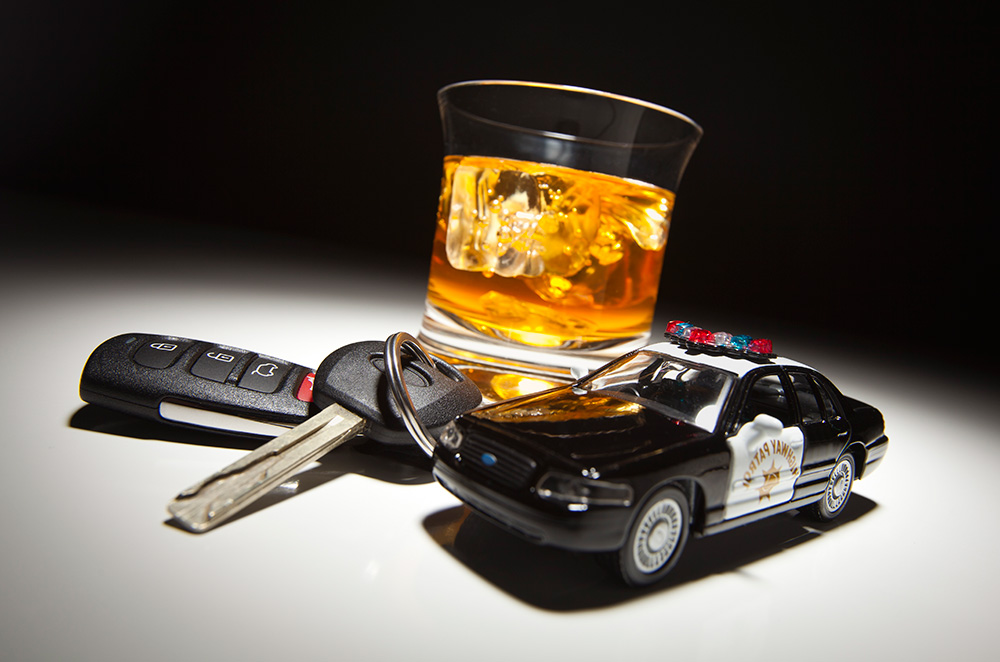When it comes to getting behind the wheel in Texas after a drink or two, knowing where the law draws the line isn’t just helpful—it’s absolutely critical. Texas DUI alcohol limits serve as the legal threshold that separates responsible drivers from potential criminal charges. Whether you’re a first-time driver, a parent guiding a teen, or someone who simply wants to stay informed, having Texas DUI alcohol limits explained clearly could save you from making a life-altering mistake.
In this article, we’ll walk through what Texas considers legal and illegal in terms of alcohol consumption and driving. You’ll learn how the law measures impairment, how enforcement works, and what happens if you cross that invisible line. We’ll also explore different legal categories—like zero tolerance for minors, stricter rules for commercial drivers, and what implied consent actually means. Along the way, you’ll find real-life examples, legal analysis, and practical tips to help you stay compliant and protect your driving record.

Understanding the Legal Blood Alcohol Limit in Texas
The 0.08% BAC Rule
In Texas, the standard legal blood alcohol concentration (BAC)limit for drivers aged 21 and older is 0.08%. That number might seem straightforward, but how it’s measured and what it means varies from person to person. BAC is affected by:
- Your weight and gender
- How much you’ve had to eat
- The type and quantity of alcohol consumed
- How quickly you were drinking
- The time between drinks and testing
For example, a 160-pound man might reach 0.08% BAC after about four drinks in an hour, while a 120-pound woman could hit the same level after just two or three drinks. Texas DUI alcohol limits aren’t about how drunk you feel—they’re based on what the breathalyzer or blood test shows.
The Zero Tolerance Policy for Minors
One Drop Is Enough
If you’re under 21 in Texas, the state has a zero tolerance policy for alcohol and driving. That means if you’re found operating a motor vehicle with any detectable amount of alcohol in your system, you can be charged with DUI (Driving Under the Influence)—even if your BAC is well below 0.08%.
Penalties for minors (under 21) can include:
- Driver’s license suspension for up to 60 days (first offense)
- Fines up to $500
- Mandatory alcohol awareness courses
- Community service
Texas DUI alcohol limits for minors are strict by design. Lawmakers want to deter underage drinking and prevent tragedies before they happen.
Commercial Drivers and Lower Limits
The 0.04% BAC Standard
If you drive a commercial vehicle in Texas, such as an 18-wheeler or a passenger bus, you’re held to an even higher standard. The legal BAC limit for commercial drivers is 0.04%—half the limit for regular drivers.
This lower limit reflects the seriousness of the job and the potential risk to public safety. Being charged with a DUI as a commercial driver can lead to:
- A one-year disqualification from holding a commercial driver’s license (CDL)
- Fines and possible jail time
- Job loss and difficulty finding future employment

Understanding Texas DUI alcohol limits is especially important for commercial drivers, because the margin for error is extremely small.
Enhanced Penalties for High BAC
What Happens If You Blow 0.15% or More?
In Texas, if your BAC is 0.15% or higher, you’re subject to enhanced penalties, even for a first-time offense. This is considered an aggravated DWI, and it comes with stricter consequences.
Enhanced penalties may include:
- A Class A misdemeanor charge (instead of Class B)
- Up to 1 year in jail
- Fines up to $4,000
- Mandatory installation of an ignition interlock device
- Longer probation and license suspension terms
Texas DUI alcohol limits are structured to punish not just those who cross the 0.08% line, but especially those who blow past it. The higher your BAC, the harder it is to argue for leniency.
Real-Life Story: The One-Drink Myth
Take the case of Daniel, a 29-year-old who had two beers at a work happy hour. He felt fine to drive home. About 10 minutes into his drive, he was pulled over for a broken taillight. The officer noticed the smell of alcohol, and Daniel consented to a breath test. His BAC was 0.09%.
Daniel was shocked. He didn’t feel impaired. But according to Texas law, he was legally intoxicated. He ended up spending the night in jail, paid thousands in court costs, and lost his license for six months.
His story serves as a reminder that Texas DUI alcohol limits aren’t based on your personal judgment—they’re based on strict numbers.
Implied Consent in Texas
Refusing a Test Comes With Consequences
Texas has what’s called implied consent laws. That means if you’re arrested for suspicion of DWI, you’re legally required to submit to a breath or blood test.
You can refuse—but doing so triggers automatic penalties:
- 180-day license suspension for the first refusal
- 2-year suspension for subsequent refusals
- Possible use of your refusal in court as evidence of guilt
While you have the right to refuse a test, the consequences of doing so are harsh. Texas DUI alcohol limits don’t just apply to test results—they also impact you if you try to avoid testing altogether.
Field Sobriety Tests vs. Chemical Tests
Not All Tests Carry Equal Weight
When officers pull you over, they may ask you to complete field sobriety tests (FSTs), including:
- Walking a straight line
- Standing on one leg
- Following a moving light with your eyes
FSTs are voluntary, and refusing them won’t lead to automatic penalties. However, once you’re arrested, chemical tests—like breath or blood tests—become mandatory under Texas law.
Attorneys often challenge FST results because they are highly subjective. Factors like fatigue, nerves, or even uneven ground can lead to a failed test. That’s why separating field observations from chemical evidence is important when assessing how Texas DUI alcohol limits are enforced.
DUI Penalties Based on BAC and Offense History
What You Can Expect If Convicted
To understand the full impact of Texas DUI alcohol limits, you need to know the penalties that follow a conviction:
First Offense (BAC between 0.08% and 0.14%):
- Jail sentence of up to 180 days
- A fine not exceeding $2,000
- License suspension between 90 days and 1 year
- Required DWI education course
First Offense (BAC 0.15% or more):
- Jail time up to 12 months
- Fines up to $4,000
- Ignition interlock device (IID) requirement
Second Offense:
- Up to 12 months in jail
- Fines not to exceed $4,000
- License suspension for 180 days to 2 years
Third Offense:
- A prison sentence ranging from 2 to 10 years
- Up to $10,000 in fines
- A permanent felony conviction
As you can see, climbing over the Texas DUI alcohol limits isn’t just dangerous—it’s expensive, restrictive, and potentially career-ending.

How Alcohol Affects BAC Levels Differently
One Drink Doesn’t Mean the Same for Everyone
You might think it takes a lot of alcohol to hit the legal limit, but that’s not always true. BAC varies based on:
- Gender
- Body mass
- Metabolism speed
- Drinking frequency
- Alcohol type and volume
Here’s a quick breakdown of estimated drinks needed to reach 0.08% BAC:
- A 120-pound woman: 2 drinks
- A 160-pound man: 3 to 4 drinks
- A 200-pound man: 4 to 5 drinks
These estimates assume the drinks are consumed over the span of one hour. However, everyone metabolizes alcohol differently, making guessing risky. With Texas DUI alcohol limits, it’s never safe to rely on back-of-the-napkin calculations.
The Role of Ignition Interlock Devices (IIDs)
Keeping You Sober Behind the Wheel
For drivers with high BACs or multiple offenses, Texas courts often order the installation of anignition interlock device (IID). This is a breathalyzer that you must blow into before starting your car.
IIDs:
- Prevent your car from starting if alcohol is detected
- Require periodic retesting while driving
- Are monitored monthly by authorities
- Cost between $70 and $100/month
They’re a hassle—but often the only way to retain limited driving privileges after a conviction. These devices are becoming more common, especially in cases involving Texas DUI alcohol limits of 0.15% or more.
The Dangers of Prescription and Over-the-Counter Meds
It’s Not Just About Beer and Liquor
Most people think DUI laws only apply to alcohol or illegal drugs, but prescription and even over-the-counter medications can land you in legal trouble if they impair your ability to drive.
Medications like:
- Xanax
- Ambien
- Codeine
- Cough syrups with alcohol
…can affect coordination, reaction time, and alertness. If you’re pulled over and show signs of impairment—even without alcohol—you can still be charged under the same DUI statutes.
So when talking about Texas DUI alcohol limits, it’s wise to expand the conversation to all substances that affect your ability to drive safely.

Real-Life Example: Prescription Pills and DUI
Lucy, a 45-year-old mother in Dallas, took her prescribed anti-anxiety medication before school pickup. While driving, she rear-ended a car at a stoplight. Officers noted her drowsiness and poor coordination. Her breathalyzer test came back clean, but a blood test revealed high benzodiazepine levels.
She was charged with DWI despite never touching alcohol. Lucy’s story underscores that Texas DUI alcohol limits encompass more than just ethanol—they apply to any substance that compromises safe driving.
Key Takeaways: Texas DUI Alcohol Limits You Must Know
When it comes to driving in Texas, the rules about alcohol aren’t just technical—they’re life-changing. Texas DUI alcohol limits are clearly defined, strictly enforced, and carry steep consequences for anyone who crosses them. Whether you’re sipping wine at dinner or celebrating a friend’s promotion, knowing your limits—and the law’s limits—can keep you safe and out of legal trouble.
Never assume you’re okay to drive based on how you feel. Know the numbers, understand the law, and when in doubt, find another way home. Education, responsibility, and preparation are the best defenses against DUI charges. Because once you exceed the Texas DUI alcohol limits, the road back becomes longer—and much more expensive.

